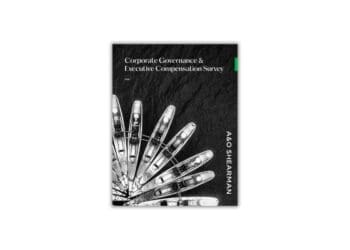with contributing authors Romesh Weeramantry and Montse Ferrer
A company in the midst of arbitration proceedings that discovers potential bribery related to the contract at issue faces inherently irreconcilable conflicts – does it attempt to confine the allegations within the arbitration proceeding or does it disclose them to anti-corruption authorities to stave off potentially astronomical fines? It is critical to understand how the corruption issues will impact the arbitration and vice versa in order to make the appropriate strategic decisions. As often happens, timing is everything … and nothing. The conflicting considerations are these: Arbitration proceedings are ordinarily private and confidential, raising a hope that if a corruption issue is uncovered, it could be handled outside public scrutiny and without regulatory notice as contractual concerns are resolved. Although confidential, the bribery allegation will probably affect the arbitration outcome, as arbitral tribunals are increasingly willing to dismiss the company’s claims under a contract found to have been obtained through bribery. Moreover, there are exceptions to the confidentiality of arbitration proceedings that would expose the corruption issues to the public, including regulatory and enforcement authorities. Should the authorities learn of the corruption through such public exposure, the company loses the benefit of penalty mitigation that is possible through timely voluntary disclosure, as explained below. Thus, in weighing its options and timing its disclosures, a company must understand what it can and cannot control. Voluntary Disclosure of Potential Bribery to Anti-Corruption Authorities The U.S. authorities that regulate and enforce anti-corruption laws, the Department of Justice (DOJ) and the Securities and Exchange Commission (SEC), encourage companies to voluntarily disclose potential violations of the Foreign Corrupt Practices Act (FCPA) by offering potential penalty mitigation. In fact, there have been no FCPA declinations reported by the DOJ or the SEC which did not result from voluntary disclosure. However, disclosure does not guarantee leniency. For one, the disclosure must be timely. Most recently, in announcing a settlement with the Ralph Lauren Corporation, the SEC emphasized that “[w]hen they found a problem, Ralph Lauren Corporation did the right thing by immediately reporting it to the SEC” – “immediately” meaning “within two weeks of discovering the illegal payments and gifts.”[1] And yet, there are risks in premature disclosure, namely unnecessary investigation costs and negative publicity for acts that may not ultimately warrant enforcement action. A study of FCPA cases resolved between 2004 and 2011 found no correlation between the extent of the penalties and companies’ efforts to voluntarily disclose the violations.[2] When Private Becomes Public When the issue of bribery arises in the context of commercial arbitration, a company might consider relying on the generally private and confidential nature of the process. However, three general exceptions exist under which an arbitration may become public:[3] First, if a party applies to a court to set aside an arbitral award or remove an arbitrator, that award may become part of the court’s public record. Although many courts have the power to order that such court proceedings remain confidential, this varies by jurisdiction. Second, procedural rules of arbitral institutions may also provide for disclosure. The Singapore International Arbitration Centre Rules, for example, expressly permit disclosure of matters related to the arbitration, should compliance with a request or requirement of any regulatory body or other authority be mandated. Third, arbitrations against States under investment treaties, such as bilateral investment treaties, are generally less confidential than commercial arbitrations. The awards of investment treaty arbitration tribunals are frequently made public. Thus, companies should not take for granted that arbitration proceedings will remain confidential. If a company becomes aware of corruption during an arbitration, the ordinarily private and confidential arbitral process may become public, leading to involuntary disclosure of the offenses to the wider public. In such an instance, penalty mitigation through voluntary disclosure is no longer an option. The Impact of Corruption on Arbitration Proceedings If a company decides that discovery of the bribery allegations by government authorities is inevitable or that the potential benefits of self-disclosure outweigh the risks, a decision to self-disclose may have an impact on the arbitration. To start with, most FCPA resolutions are public, effectively serving as proof or indicia of corporate wrongdoing in the arbitration hearing. A disclosure of bribery committed by one of the parties in the dispute may lead an arbitral tribunal to find that the underlying contract (or investment) is voidable or unenforceable. Allegations of bribery have been addressed in investment treaty arbitral awards, wherein the tribunals have granted corruption defenses to respondents on three grounds: First, arbitral tribunals may decide not to enforce contracts if the treaty, convention or underlying contract relating to the investment in question has a requirement that the investment is made legally, or in accordance with laws. Most recently, in October 2013, the International Centre for Settlement of Investment Disputes (ICSID) tribunal determined, in Metal-Tech Ltd. v. Republic of Uzbekistan, that it lacked jurisdiction to adjudicate the matter due to corruption related to Metal-Tech’s investment in Uzbekistan. Second, violation of international public policy may be invoked, as in World Duty Free Co. v. Republic of Kenya. The ICSID tribunal there stated that “bribery is contrary to the international public policy of most, if not all, States or, to use another formula, to transnational public policy.”[4] This landmark case, decided in 2006, was the first investment tribunal to hold that “claims based on contracts of corruption or on contracts obtained by corruption cannot be upheld.” Finally, an arbitral tribunal may choose not to enforce a contract because of general principles of public international law, including the principle of good faith. In the contractual field, good faith means absence of deceit and artifice during the negotiation and execution of instruments that gave rise to the investment.[5] Decisions to Make Once Bribery Allegations Arise When confronted with the choice of (1) the potential benefits of voluntary disclosure at the risk of jeopardizing the arbitration or (2) proceeding with an arbitration and relying on its confidential and private nature, a company needs to understand the likelihood that bribery will affect the outcome of the arbitration hearing and that the bribery will become public eventually, regardless of the choice it makes. If the company chooses to disclose to the SEC and DOJ, despite the lack of any guarantees of penalty mitigation, such disclosure should be made relatively soon after discovery of the acts surrounding the wrongdoing. This voluntary disclosure and any subsequent resolution with U.S. authorities, however, may provide evidentiary support for a respondent’s defense in an arbitration proceeding, leading to an unenforceable contract. If the company chooses not to disclose to the U.S. regulators, any facts that could be interpreted as corrupt behavior on behalf of the company should be treated with great care in the arbitration proceedings. Such facts could be used by the arbitral tribunal as the basis for an adverse finding against the company. Moreover, should any of these facts ultimately surface during the arbitral proceedings when the arbitration becomes public, the U.S. regulators may impose a greater fine on the company than if the company had voluntarily disclosed these facts. In any of these scenarios, the risks of not disclosing to the U.S. regulators are high.



 Wendy L. Wysong is a partner at
Wendy L. Wysong is a partner at 










